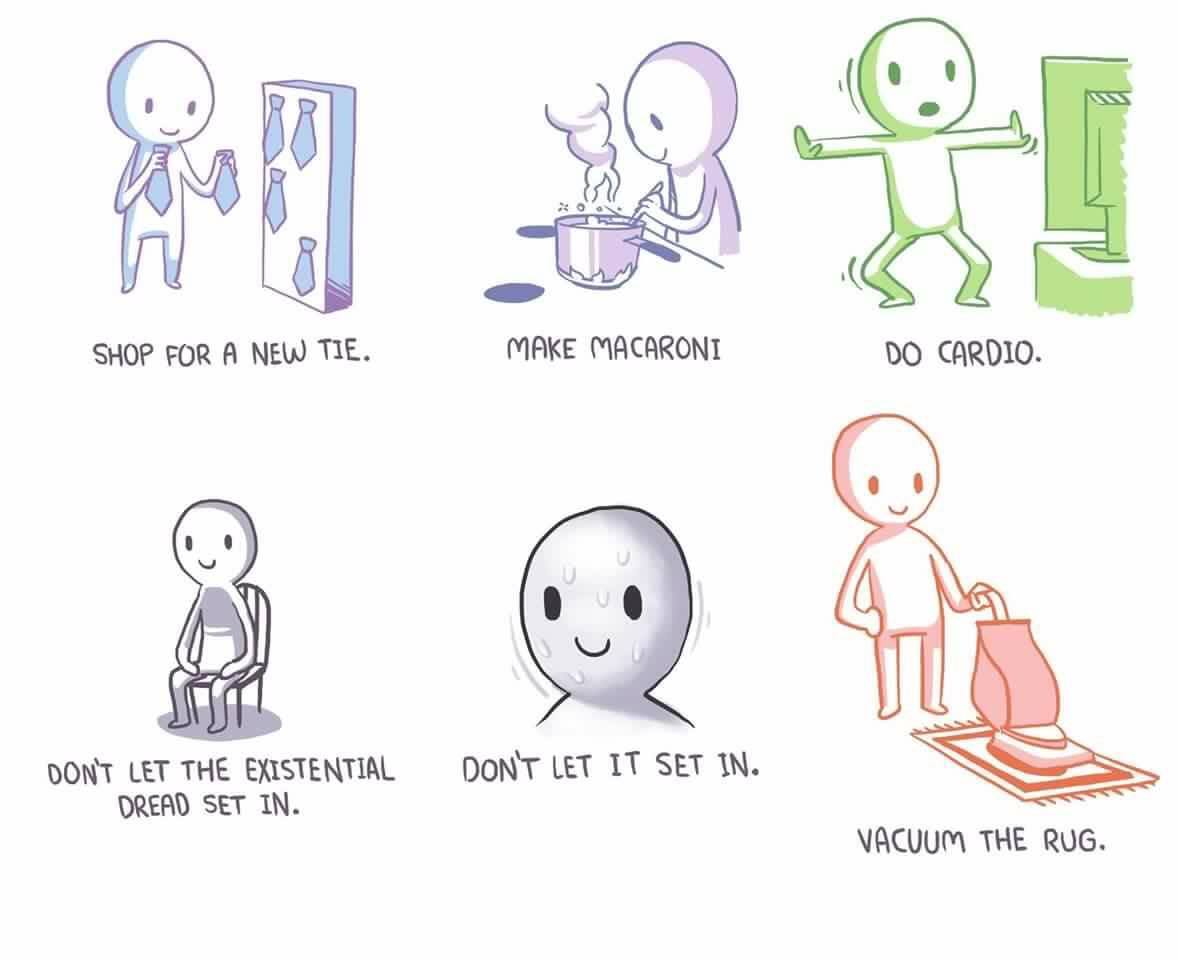When Carly Guthrie was running HR for Per Se, one of the hottest restaurants in New York, the general manager gave her a piece of advice: “You know, Carly,” he said. “If we’re doing our job as leaders, a performance review should only be two columns: Column A is what you do great and Column B is what you do not-so-great. Now, here’s how we move things from Column B to Column A.”
This approach stuck with Guthrie as she left the restaurant world to head up people operations for tech companies. It shocked her that these types of candid conversations were hardly ever happening, and people left as a result. “There’s a mercenary mentality in tech right now—an idea that there’s always going to be something hotter, faster, more groundbreaking,” she says. “And yet, there’s very little internal discussion about how to keep people.”
Guthrie has been watching employees take and leave jobs for over 15 years. Turns out, the reasons people love and hate their work are largely the same across sectors.
In this exclusive interview, Guthrie shares what she’s learned about why people quit, and what startups can do after an employee’s first day to make sure they stay happy, engaged in their work, and committed to your company (and to deleting every email they are most certainly receiving from recruiters).
This is why you lose people
1. You don’t respect their time
In Guthrie’s experience, employees will follow up with recruiters and other job offers if they’re even slightly angry, bored or dissatisfied. “Usually the hours are wearing on them or their spouse is on their case because they’re never home,” she says. “A really good CEO thinks about the bigger picture and realizes people have lives outside of work. That’s the number one way to prevent people from feeling like they might want to be somewhere else.”
But it’s easier than you think to be thoughtless. For example, Guthrie has seen countless companies throw weekly happy hours that start at 4:30pm every Friday. The result: People feel like they have to stay until 6pm to be a good co-worker, then they get a slow jump on traffic, they get home later and they’re tired, when they really want to just go do their own thing. “Just moving the happy hour to Thursday would show a tremendous amount of awareness and make people feel that much better about the company and leadership,” she says.
On the flipside, there are many companies that like to emphasize their rigorous hours by hosting early-bird staff meetings on Monday mornings. Guthrie has seen these get as early as 7:30am. “No one wants a Monday meeting at 7:30am. No one. This forces people with kids to juggle like crazy to get them to school on time. And even if you don’t have kids, you want to get the most out of your weekend. You don’t want to go to bed early every Sunday.” Even if you don’t mean it, this kind of practice communicates that you don’t really care about employees as people.
“From 5pm on Friday to 9am on Monday should be people’s own time, not the company’s.” “From 5pm on Friday to 9am on Monday should be people’s own time, not the company’s.”
It should be people’s choice to work on the weekends or not. When you provide this level of freedom, it makes it that much more reasonable to say, “I’m going to ask the sun and stars from you the rest of the time.” If you’re worried that your startup needs to move faster than that, consider the following:
- People who love their job and the company will work all the time anyway. If you’ve hired good fits, you’ll see this happen.
- People do better work when they have lives of their own. “That’s not always a popular opinion, but I’ve seen how true it is over and over again,” says Guthrie. “It’s not just people with kids or spouses. Everybody has a community outside of the office. So few employers respect that—if you make it a point to, that will bind your employees closer to you.”
Some companies are beginning to take these best practices a step further and mandate one or two weeks of vacation time without access to company email or tools. That’s right, literally turn their email off for the duration of their vacation.
“It’s not punitive, it’s for good employees. You can remove the worry from spending time with your family or traveling abroad.” But what if something goes awry? “We’re all adults, we can problem solve,” says Guthrie. While this strategy might not work at the earliest stage, if you’re large enough, it shows a deep respect for an employee’s time. For most employees, “Time is more important than things.”
2. Employees usually don’t leave because of their boss
There’s a persistent trope in the HR world that the main reason people leave is because they don’t get along with their manager. Despite its prevalence in the corporate zeitgeist, “That’s actually pretty rare,” says Guthrie. Generally, almost everyone gets a sense of mismatched chemistry during the hiring process. If someone leaves because of their boss, that’s a failure in the company’s hiring process—an employee didn’t get enough exposure to their boss during the process, or alternatively, if there’s a history of subordinates leaving, their boss was the bad hire in the first place.
There is, however, one big reason employees may leave on account of their manager: Loss of confidence—in them or the company. “Let’s say you’ve had a couple of pivots and you just don’t believe in the company or concept anymore. You lose confidence in the marketability or leadership,” says Guthrie. A company’s leadership needs to be aware of these potential undercurrents in their organization, and should deal with them head on. Otherwise, your best and brightest will be on the lookout for opportunities to jump ship.
3. If you’re making a counter-offer, you’ve probably already lost
Often, to prevent brain drain, a startup will make a counteroffer to someone who says they might depart. But at that point, the battle for that employee is pretty much over anyway. “When you tell an employer you’re leaving, you’re saying, ‘I’m unhappy. You may be able to buy me for another six months, but mostly, it’s the end of the chapter,’” says Guthrie.
“If you’re happy, you’re not even looking at other jobs.” “If you’re happy, you’re not even looking at other jobs.”
Employers often forget that looking for a job is an exhausting process, and people only consider that route if they’re truly not content where they are. “If you’re really happy at work, you’re not interested in going down that road. You want to go home. You want to have dinner with your friends. You don’t want to figure out how to arrange your work schedule to take an interview. Nobody wants that if they’re already satisfied.”
This is how you keep people
Recognizing and protecting against employee departures is only one piece of the puzzle. The best retention strategy involves more than protecting against employee disaffection. You have to be proactive about cultivating happiness and good will. Below, Guthrie speaks to the strategies startups can employ, beyond the coarser (albeit necessary) foundations of money and equity.
1. Build a community with purpose
First and foremost, you have to create a community where people want to spend a great deal of their time. “I’ve seen environments where people are so engaged in the product and with one another that they really do feel like they’re part of something bigger and important,” she says.
“Your goal should be to make people feel like, ‘We’re all in this together and have a huge opportunity as a team.’” “Your goal should be to make people feel like, ‘We’re all in this together and have a huge opportunity as a team.’”
As head of HR and Operations at student network ReadyForce, Guthrie saw a team become incredibly bonded—to the extent that many are still good friends even though some eventually moved to new companies. This type of community enhances talent and collaboration and makes it very difficult to leave.
So how did ReadyForce do it?
The same three people would interview everyone for a particular role so that they were comparing apples to apples. Then they would convene and show thumbs up or thumbs down. If there was disagreement, they’d talk about why and foster healthy debate about candidates. “This really forced everyone to form an opinion and be thoughtful about every person they met. Would they go to bat for the person? Why? What would it be like to actually work with them?” As a result, candidates were only selected if everyone was extremely excited about them joining.
One big difference is that the company didn’t approach recruiting from a purely skills-based perspective. “Honestly, we placed a high price on ‘hilarious’ and hired wonderful people, I think partially because we were willing to work with people who were awesome culture fits even if they had a steep learning curve ahead of them.”
Conversely, that meant filtering out people who may have been exceptionally skilled but not culture matches. Put bluntly, Guthrie suggests you ignore the “brilliant jerks.” Your company culture cannot be created by top-down edict—it’s always going to be a reflection of the collected personalities. Every single person you hire will make a difference. Also important to note: Brilliant jerks are harder to remove because it’s nearly impossible to justify their dismissal if they’re delivering good work. But they have a pernicious effect on culture that far outlasts their physical presence at the company.
On top of running a very detailed, comprehensive onboarding process, ReadyForce also adopted a unique attitude toward group activities. “At so many companies, you see this ‘mandatory fun’ thing happening whether anyone wanted to do it or not. At ReadyForce, I think a lot of our experiences were special because they were organic—they came out of people’s personal interests. And the leadership provided the resources and room to do more creative things based upon those interests.”
2. Balance the importance of community against personal freedom
A popular retention strategy companies use to keep employees happy is flexible scheduling, particularly by letting employees—and especially engineers—work from home. But how can you reconcile “WFH” with the need to cultivate a sense of community and unified culture?
“There’s no hard and fast rule when it comes to working from home. It really depends on your culture.”
“There’s no hard and fast rule when it comes to working from home. It really depends on your culture.”
While there’s rarely an easy answer, Guthrie offers two tips for companies looking to strike the right tone:
- Make sure managers trust their employees. It’s human nature to think, “I don’t see this person in the office, so I subconsciously assume they don’t work as hard.” Managers need to communicate clearly to employees (and themselves) that they are results-oriented, while employees need to trust that it’s important and justified when managers ask for them to be in the office. It’s all about both sides respecting each other’s time and abilities—and, perhaps most importantly, communicating this mutual respect.
- If you offer “WFH” options for engineers, you should offer it to everyone. Employees often get resentful if a remote work policy is perceived to be unfair. “Can salespeople make calls from home too? Unfair treatment is what gets employees hung up,” says Guthrie. It’s best to craft a policy that preserves serendipitous camaraderie in the office while offering the opportunity for all employees to reap the recharging benefits of occasional remote work.
3. Structure a mentorship program that people actually want
Providing a good mentor, and making that relationship natural and easy, goes a long way toward keeping people in a role. It shows the employee that the company is invested in their personal growth, and that there’s someone (other than their manager) looking out for their best interests. But you can’t force it. Like mandatory fun, pairing people with mentors arbitrarily rarely works.
“You definitely don’t want to just introduce your new hire to someone random and say, ‘Here’s your buddy,’ but that happens all the time,” Guthrie says. “It’s unclear what that even means or what you should do. Instead, look for skills that are outside of the new person’s wheelhouse that you know they want to learn. Find someone who has those skills to pair them with and explain the connection.”
“Mentorship needs to be more organic than we’ve typically forced it to be.”
“Mentorship needs to be more organic than we’ve typically forced it to be.”
“Think about people who wouldn’t have the opportunity to work or interact with each other otherwise. Would it benefit them to know each other from a learning perspective? Maybe pair them together. Ask every new employee, ‘What do you want to achieve in this job? What other skills do you want to learn or sharpen, and how can we help you do that?’”
Just asking this question can convince someone they made the right choice by joining your company. The critical thing is to follow through. If a marketing hire says they want to learn Ruby, or an engineer says they want to learn presentation skills, don’t let it drop. Record it somewhere, and then make the best introductions you can. Don’t stop there either. Go the extra mile to suggest how these people might work together to make learning possible. Perhaps advise that they meet a certain number of times a month for a time-bounded period. That makes it sound low-lift, and if they do become close and everything is working well, they can decide to continue the relationship. Keep in touch with the mentor on the progress the employee is making, and then give them a chance to show off their new skills where you can.
Mentorship can also become a useful vector for shortening feedback cycles outside of typical manager-to-employee relationships, which will help you spot potential retention issues earlier. During her time with the Mina and Thomas Keller restaurant groups, Guthrie says she grew to appreciate just how much instant feedback flowed between senior and junior chefs. “In restaurants, there’s just this instant loop. Items don’t make it to the pass at the same time? Not set up for service? You’re going to hear about it right then and there.”
“Good mentors have a very clear sense of what you’re supposed to be accomplishing and won’t wait to give you feedback.”
“Good mentors have a very clear sense of what you’re supposed to be accomplishing and won’t wait to give you feedback.”Startups could benefit from using mentorship as an opportunity to shorten their own feedback cycles, without making people nervous about their performance. Especially when there is no formal reporting structure involved, employees are also far more likely to be candid with their mentors and share if they’re looking for other opportunities.
4. Bringing in good HR early can make a decisive difference
“It’s a bummer that people think HR is all about rule thumping—it’s got a bad rap,” says Guthrie. “That’s why it’s even more important to have an HR person or representative who is relatable and trustworthy. People should feel like they can ask anything, even the really dumb questions. And you, as a founder or manager, should feel like you can trust them with the deepest, darkest secrets of the organization.”
“Who do you want in your bunker with you? That should be your HR person.” “Who do you want in your bunker with you? That should be your HR person.”
“For all these reasons, you need to choose someone you like. HR is not about algorithms. There’s a whole lot of humanity involved, and that gets messy. You need empathy on your team. You need someone who can say, ‘I might not agree with your choices, but I will put myself in your shoes and try to understand where things went off the rails.’”
These are all great qualities, but the single most important trait a good HR person can have is the ability to effectively train managers to handle similar questions and issues, Guthrie says.
“The hallmark of a healthy culture is that people feel comfortable bringing up problems with and offering feedback to their leaders and vice versa,” she says. “There’s this joke that HR reps are like paid assassins, because if you walk into a room and an HR person is there, nothing good is about to happen. If this is the mood at your company, it’s management’s fault. They haven’t communicated clearly.”
The need to train management and provide a sounding board is a strong argument for bringing HR (or someone who fulfills these duties) into your company earlier than later.
“When your company is your baby, you’ve already lost perspective.”
“When your company is your baby, you’ve already lost perspective.”The thing is, that’s okay, Guthrie says. “Hire or contract someone who has the ability to tell you hard things you don’t necessarily want to hear—someone you can trust to give you a good reality check when you need it.” Many times, HR is a good choice to serve this purpose given the confidentiality and bird’s-eye view of the business.
Sometimes, especially if you’re running an early-stage company with limited funds, contracting can be the best way to go because that person exists outside the company and has no skin in the game. “When that’s the case, this person is really there just to help you. Then, when you get to 40 people, you’ve already figured out what your relationship with People Operations should look like. Being a founder can get extremely lonely. I think it’s easy to forget that. But bringing in someone who sees the things you don’t, and who puts your people front and center can make it a little less lonely.”
The seven rules of talent retention
There are a number of ways to keep your best people, but no silver bullet. As you think through your own retention strategy, remember the following:
- Recognize that employees have lives outside of work—cultivate a deep respect for employees’ time.
- When employees leave because of their boss, it rarely comes from personality mismatches; it stems from a lack of confidence.
- Counteroffers are (an expensive) band-aid; they won’t fix an employee’s fundamental unhappiness.
- Building a genuine sense of community is crucial to employee retention. Make sure your hiring process incorporates and heavily weighs cultural fit.
- Hashing out a concrete “work from home” policy can improve employee happiness/retention, but it’s largely dependent on your organization’s needs. Make sure you’re being fair across the board.
- Good mentorship happens organically, and should be directed by employee interests and growth. It also creates another opportunity for a natural, short feedback loop you can definitely use.
- It’s never too early to invest in good HR, whether it’s processes or people. This can absolutely include HR contractors. An outside perspective can be invaluable for founders who need big-picture reality checks.
This post originally appeared at First Round Review. We welcome your comments at ideas@qz.com.





